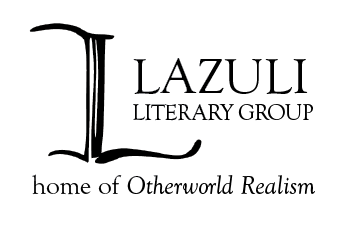- ABOUT
- CONTESTS
-
AZURE: A Journal of Literary Thought
- AZURE Volume 8 >
- AZURE Volume 7, Issue 3 >
- AZURE Volume 7, Issue 2 >
- AZURE Volume 7, Issue 1 >
- AZURE Volume 6, Issue 4 >
- AZURE Volume 6, Issue 3 >
- AZURE Volume 6, Issue 2 >
- AZURE Volume 6, Issue 1 >
- AZURE Volume 5, Issue 4 >
- AZURE Volume 5, Issue 3 >
- AZURE Volume 5, Issue 2 >
- AZURE Volume 5, Issue 1 >
- AZURE Volume 4, Issue 4 >
- AZURE Volume 4, Issue 3 >
- AZURE Volume 4, Issue 2 >
- AZURE Volume 4, Issue 1 >
-
ARCHIVES: VOLUME 3
>
-
ARCHIVES: VOLUME 2
>
-
Archives: Volume 1
>
- Literature Courses
- SUBMISSIONS
- BLOG
- Lazuli Reading Series
- Literary Links
|
There is beauty in this book, and there is genius; there is ink and fiber and a crinkling of pages, and yet it lives in my hands like a beating heart. This book has been important to me for several reasons, one of which is that it is the one of the extraordinarily few I have read that was written by a living author. I do not know how to speak of the poetry in this book because I can barely dare to touch it—but let me make no mistake by beginning with this statement: it is there, everywhere. Popova refers to a deeper culture than the popular (the real, perhaps? the universal? the delicately human?), and we hardly notice (for hundreds of pages, as she gently skittles through the lees) that we have not breathed the harsh artificiality of banality, posturing, tired phrases that form so painfully the deadening mist of our world. It felt delightful to relax; to unclench the fist of the mind; to feel secure that the next turn of phrase would be intelligent—would corporealize original thought and exude a flavor of empathy. To stop judging or wondering if it will be meet to turn the page—for it shall be. I experienced the strange sensation of forcing myself to read a book without a pen in my hand. Every conscious underline inevitably makes an unwitting statement about every non-underline, provoking a whole host of annotation anxieties; I decided to forgo my pen and take my leave of the whole vicious quagmire entirely. And indeed, unmoored to this implement that usually gives me the (erroneous) security that a beautiful sentence has not slipped through my hands unheeded and unremembered, I realized I was right to have foreseen this linguistic glutting, this constant shimmer. I felt lonely, at first (would anyone ever understand the genius and eloquence I have here encountered?); I then felt satisfied (they may not, but Maria Popova wrote it—that’s one person who has swum in this book with me—and several geniuses are here written about—perhaps their ghosts would consent to linger in my midst?); I finally, for better or worse, felt compelled to write this review. What is beautiful about Popova’s writing is what seems beautiful in her person—that she is so unabashedly in love with imagination, knowledge, thought, and the illuminance; she does not reach above the surface of the intensity to catch her breath in mediocrity, does not offer in her book the moments of levity that allow for the release of the sort of nervous laughter so characteristic of avoidance that percolates in crowds who have been confronted with something all too serious, something too vulnerable to own in a group. Popova plants herself in the center of the emotion—a position which is in academia seen so often as frivolous, an unnecessary caveat, an unwelcome but tolerated interloper upon the “serious stuff” of the intellect—and it is from emotion that her tale of historical wisdom begins. “Figuring” approaches the lives of people who, though immersed in the fields in which I consider myself obsessed (quantum physics, poetry, astronomy, and literature), I had very little detailed knowledge of. Popova approaches these figures first as people to be identified with, and only then as visionaries to be awed by (and awed, indeed, we are). I have always wished that non-fiction could contain this element considered so salient and so necessary in the judgment of “good” fiction; that which moves the heart, in that it considers the heart. And it is this thematic, emotional structure by which the book is so carefully ordered—not by character, not by chronology, but by the vicissitudes of hope and despair, struggle and transcendence, repeated generation after generation in much the same way. This design encompasses these (mostly) women’s atoms in an ever moving tide that composes a symphony with them, their contemporaries, Maria Popova—their steward into this century—and, finally, the reader. The pain and the heartbreak in this book is almost untenable; it rends the soul. And it is not mitigated by unprecedented successes that are ultimately offered to these women in their lifetimes—and yet, the experience of reading their pain is more sweet than it is bitter, for they are so deeply in love mostly with beauty, mostly with goodness, that it fills something in them that compels them against their flagging joy and illuminates a twinkle in their melancholy. That even in their heartbreak, they are a part—perhaps that in this, they are MOST a part. And a part of what? There is a thing that is to be held, made precious, relinquished; a nobility of intellect that is an honor to encounter—to notice suddenly, surreptitiously, in one’s own hands. I have to believe (without presumption) that there is something of this that animates Maria Popova, a poet and a scientist and a humanist in her own right, in “Figuring”. She has created a history for women whom history had contentedly forgotten. She dug personally, with her hands and fingers, and breathed upon the pages and letters that were privately exchanged, written in the most intimate moments, between these women and their loved ones; what is it to receive a letter? And who was it written for? If we felt from it, was it then for us? I believe so. And in making it so, Popova has done such a meaningful service. For me, this book offers (paper and ink that it may be) an infrastructure to frame my actual, physical life decisions according to measures not to be found in the world of something so mere as one’s dimensional time; to be able to put the darkness in a place and to appreciate the beauty and to create a beauty without having solved the melancholy to which it might forever be associated; and for this to be enough for a lived human life. The acceptance may never come, or the relief in a struggle; the alienation may be persistent and the resistance, at times, intolerable. But eventually--even if years after their deaths—the things these women spent their time on mattered. There is a technical resplendence to the style of this book; “Fragmentary” may be bandied about, I know, as a failure of cohesion. To me, Popova has fragmented disciplines, times, hearts, and achievements, and welded them into a new (“creative” in the pure sense of the word) coherence, designed to illuminate ragged edges once thought smooth, surprising similarities one thought jagged (if the cover is any indication, this seems entirely intentional, no less than overt!). The constant references to time, to numbers, to counter-simultaneity, to relationships between figures apart in one dimension and yet so narratively, so empathically, so missionally connected. It is not several biographies concatenated (although it is that, I suppose, but so very reductively); it is ONE biography of a particular strain of the human race and its place within a universality. For is that not Popova’s point, after all? Stardust! It did not matter that these people were dead or that I would never meet them; it does not matter that Maria Popova is alive and I have had the privilege of hearing her speak but may never have the chance to speak to her. Thank you, Maria, for doing the years of painstaking research and crafting every sentence to its lyrical pinnacle, when you must have known—like Fuller, like Carson, like Dickinson—that you have the sort of fame that had you written something you had polished off in six months it would still have betokened a residue of your genius, would still have been commendable, would still have instantly sold millions. I suspect that, even knowing so, you could not—like Carson, like Dickinson--bear to cover a canvas with less than the entirety of the beauty you envisioned. So thank you for taking the incorporeal thoughts borne of the sizzling of atoms and arranging them in this particular way, and committing them to ink, to fibers; it has been so special to me.
0 Comments
Leave a Reply. |
AuthorThe Lazuli Editors, heightening the perception of the magical. Archives
March 2019
Categories
|
© Lazuli Literary Group 2022 | [email protected] | 847.970.2506
Illustrations & Logo by Evgenia Barsheva
As an affiliate of Bookshop.org, Lazuli Literary Group earns a small commission on sales made via any associated links on our website.
Illustrations & Logo by Evgenia Barsheva
As an affiliate of Bookshop.org, Lazuli Literary Group earns a small commission on sales made via any associated links on our website.


 RSS Feed
RSS Feed